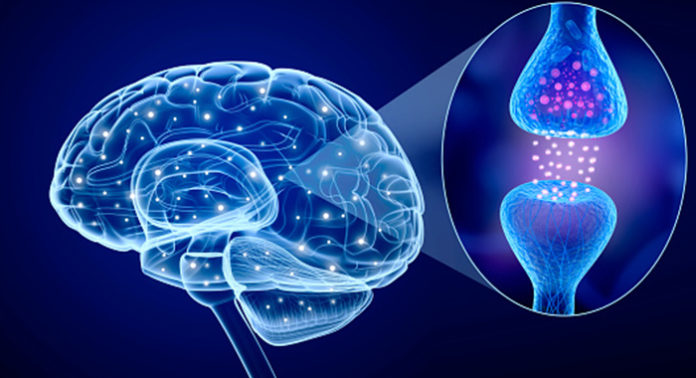By TR Robertson
The day long Parkinson’s Association Empowerment Conference, recently held at the Marina Village Conference Center, continued with a number of other presentations geared to inform, assist, and educate those attending about all aspects of the Parkinson’s disease.
Mike Reeder of Rock Steady Boxing gave a presentation about the good benefits of the exercises surrounding boxing and the benefits to Parkinson’s patients. Their non-contact boxing style fitness program provides a moderately vigorous workout for those participating as they work with trainers who help the “boxers” improve their mobility, balance, strength, and flexibility. There are a number of Rock Steady affiliates in the county. Call 619-458-9000 or go to www.boxfitsd.com for more information.
Brenton Wright, M.D., Assistant Professor of Neurological Sciences, gave a short presentation on Medical Management of Motor Symptoms. Dr. Wright pointed out that there are numerous medications prescribed for Parkinson’s to help with dopamine replacement. Finding the right combinations does take some time. The most commonly prescribed medication is carbidopa levodopa, a drug designed to help with dopamine replacement. As with any drug, there are side effects. With carbidopa levodopa some of these side effect can be nausea, drowsiness, dyskinesia, confusion, hallucinations, and rashes to name a few. Dopamine Replacement Therapy drugs are a little stronger and have the side effects of hypotension, impulse control disorders and drowsiness. Parkinson’s patients can develop “wearing off” effects where drugs go through an off and on effect over the years where the medication may not last as long as when first prescribed. To help, extended-release medications were developed. See you doctor for more information.
Paul Dawson, North County Parkinson’s Association leader, spoke about the four cluster areas in San Diego County for the Association and the importance of caregivers meeting and sharing ideas on how to best assist their loved ones. He encouraged the caregivers in attendance to become involved and support the activities of the Association.
Matt Ignacio, from the Tremble Clefs singing group, gave an introduction to the group made up of Parkinson’s patients and described how important singing and involvement is to those dealing with Parkinson’s. One of the side effects of Parkinson’s is people will start to speak in lower voice levels. The Tremble Clefs work on voice drills, strengthening the vocal cords, socializing, and having lots of fun. Matt put the group through some of the drills he uses as warm-up exercises for the Tremble Clefs and the group performed a number of songs during the lunch break. For those interested go to www.trembleclefs.com or call 619-363-0814. You can also email trembleclefsinfo@gmail.com.
Alternative Medicines and Techniques was the next topic, presented by Stephanie Lessig, M.D. from U.C.S.D. She first discussed Complimentary Therapies like Exercise, Tai Chi, Acupuncture, Massage and Yoga. Alternative medicines included Cannabis/Medical Marijuana and their effectiveness or usefulness in treating Parkinson’s. There is still an ongoing debate on whether Medical Marijuana will interact with Parkinson’s medicines. She suggested anyone interested should go to https://parkinson.org/Understanding-Parkinsons/Treatment/Medical-Marijuana. Another alternative treatment mentioned was Macuna Puriens – like levodopa but some of the side effects are not regulated. Nutraceuticals are suggested by some for helping with Parkinson’s. These include Vitamin E, Coenzyme, Inosine and Creatine. All of these have shown to have negative effects in treating Parkinson’s. Other suggestions included eating Blueberries, called a super food. No formal studies have been concluded on their effect. Using Ginkgo Biloba can interfere with some Parkinson’s medicines. Even eating bananas and Fava beans have been suggested but the quantity you would have to consume to get any kind of benefit would be almost impossible to obtain. There are some Chinese herbal medicines on the market, but with any of these alternative treatments you should always consult with your primary Parkinson’s doctor before trying any of them.
Non-motor and Sleep Issues in Parkinson’s was the next presentation by Abigail Lawler, M.D. Her topic centered on Management of the Various Stages and Symptoms that can surface in people with Parkinson’s. She went over a large list of symptoms and stages that can occur, ranging from loss of sense of smell to fatigue to weight loss, to depression and many, many more. Numerous treatments and medicines are available to treat or try and control most of the symptoms and stages. Motor therapies and physical and occupational therapies will also be recommended by a patient’s doctor.
The group was then divided into two groups, those with Parkinson’s and caregivers in attendance for the next session. In the caregiver’s group, caregivers were given a chance to discuss specific issues they had in caring for their loved ones. Topics covered ranged from sleeping issues to getting the proper care for someone with Parkinson’s.
The final presenter at the Empowerment for Parkinson’s Conference was Melissa Houser, M.D., with Scripps Clinal Group. Dr. Houser went over the Future of Parkinson’s Products and Procedures. She spoke about the development of “busters” to aid patients in the development of dopamine in their brains, needed to help in daily life. A new technique being explored to deal with Parkinson’s issues, by Insightec, called MRIgfUS is an ultrasound ablation which would be an outpatient procedure. Magnetic stimulation to treat OCD and depression is another technique being evaluated. One procedure being studied in San Diego and other cities is Stem Cell Therapy, using patient derived stem cells to turn them into brain cells with dopamine. More testing, more investigations, more funding is needed to combat Parkinson’s disease. The hope is that the future will bring the medical procedures and medications needed to give anyone dealing with Parkinson’s the methods to stop this disease.
For more information about Parkinson’s, to find out about future events and fundraising activities or to volunteer to assist in a variety of ways, go to www.parkinsonsassociation.org. The web site also has videos of the Conference presentations, power points and pictures of the event.


















